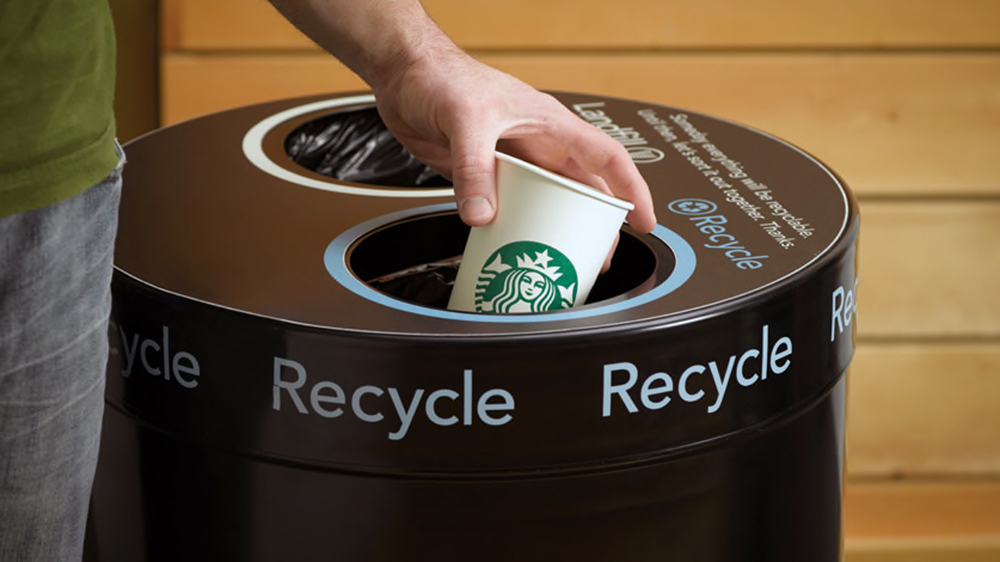Starbucks Won't Let Climate Change Take Our Coffee
Perhaps more people would start taking climate change seriously if they knew that it is coming for our coffee supply. Oh, what a hellscape this world will become without our precious morning coffee! But Starbucks is being proactive about this impending catastrophe. The company has a history of developing programs and initiatives to help make the coffee industry more sustainable; last year, it announced it was taking steps to cut its water, waste, and carbon footprints by half. Today Starbucks announced that it's setting some more ambitious environmental goals, committing to sourcing fully carbon-neutral green coffee by 2030 and investing in the technology to make it happen.
In the coffee supply chain, the majority of greenhouse gas emissions come from farming and land-use practices. Starbucks currently purchases coffee from more than 400,000 farmers in 30 countries, and given that it's the largest coffeehouse company in the world, the changes it makes to its process might very well end up dictating the future of the entire industry. Starbucks plans to equip its farmers with a new soil-scanning mobile app, which can determine the exact nutrients and fertilizers needed to increase yields; the hope is that this will decrease the overall amount of fertilizer used. The company is also aiding farmers in the adoption of new climate-resistant tree varieties, which will allow them to grow more coffee on the same amount of land. And the press release notes that Starbucks is partnering with Conservation International to protect and restore forests in Columbia and Peru, with plans to eventually expand this program to other coffee-producing countries.
Farming and processing coffee consumes a lot of water, so to help farmers slash their usage, Starbucks is investing in water conservation techniques, too. It's provided coffee farms in Guatemala, Mexico, Peru, Kenya, and Rwanda with ecological wet mills to reduce water use, and the company is helping to make the existing technology at various farms more efficient.
There's a whole lot more to be found in the official announcement, but suffice it to say that over the next five years, Starbucks plans to tackle the issue of the world's dwindling coffee supply on a number of fronts: the coffee plants themselves, the water that grows them, the farmers who cultivate them, and the environment that fosters them. To keep the public informed on its progress, the company will release a Global Environmental Social Impact Report annually. Let's hope it points to promising trends.
